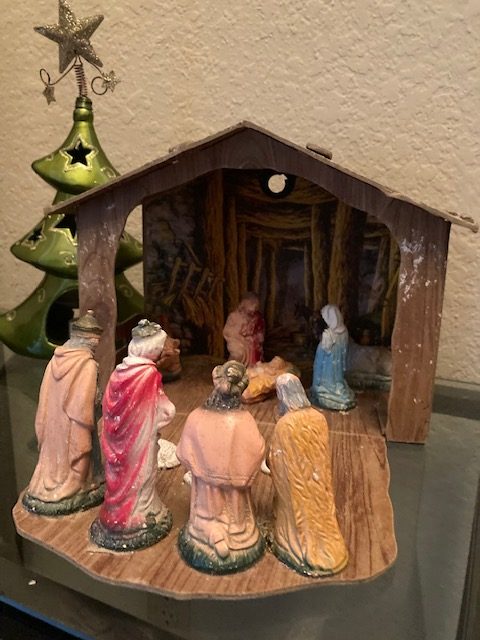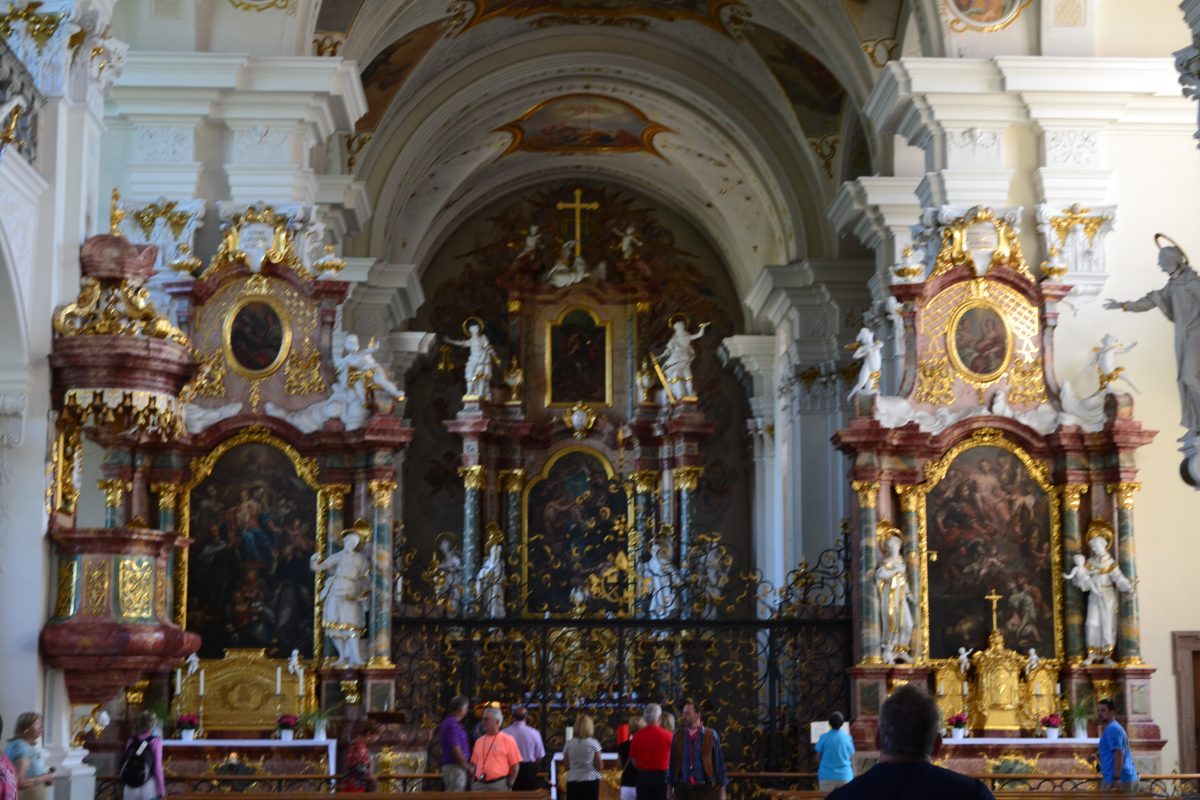Background Passages: Psalm 84:1-2; Romans 12:1-2
Sitting in Mr. Wallace’s sixth grade world geography class made an impression on this West Texas farm boy. As nice as he could be, he had a dry way of teaching, reminiscent of the economics teacher played by Ben Stein in Ferris Bueller’s Day Off…”Anyone? Anyone?”
While not overly exciting in his presentation, he opened up a world of places I assumed I’d never get to see in person.
While I admit our farm didn’t get a lot of rain, I was fascinated by the world’s great deserts and even more intrigued by the oases that dotted the desert landscape.
The Jubbah oasis sits in the middle of Saudi Arabia’s Nefud Desert, a smudged green basin in an endless sea of sand dunes. Archeological evidence suggests that humans have continuously occupied the site for at least 10,000 years, a testament to changing climate patterns and human resilience.
The freshwater lake at Jubbah exists as it has for thousands of years, an oasis in the middle of a vast desert emptiness thanks to a quirk of local geography.
Due west of Jubbah sits Jebel um Sanman, a massive sandstone formation rising abruptly 1,300 feet above the desert floor. The strong westerly winds rushing across the flat desert terrain hit the rock, breaking around it like water cut by a ship’s bow. For much of human history, the rock has protected the lake, leaving the oasis unscathed, a respite for weary and thirsty travelers.
Can you imagine the nomadic lifestyle of the region that depended upon finding that green oasis in the middle of such a vast and empty space? Your life depended on finding water to drink and shade as a respite from the desert heat. I imagine they longed to see it come into view. Yearned for it.
The thought of oasis came to mind this week as I read Psalm 84. It is a song probably sung by those Jews on pilgrimage to Jerusalem, a trek they were required to make at least once a year for the sole purpose of worshipping at God’s temple. The Psalm is a song of yearning, longing for the chance to be in God’s house to offer sacrifices of praise and worship.
As I read the Psalm, it made me think. Is church, being with God’s people engaged in worship, my oasis?
Do I truly long to be in God’s house? Do I yearn for his fellowship? Is it really my heart’s desire to seek him out, to worship God as Jesus said, “in truth and spirit?” Do I sincerely long to be in his presence?
Look at how the psalmist’s deepest desire is to spend time with God.
How lovely is your dwelling place, O Lord Almighty. My soul yearns, even faints for the courts of the Lord; my heart and my flesh cry out for the living Lord…Blessed are those who dwell in your house. They are ever praising you. (vs. 1-2, 4)
His soul aches so much to be in God’s temple that he grows faint. It’s not just something he wants to do. Worshipping his Lord is something he must do. When his heart cries out for God it expresses the hunger of a starving man or the thirst of one lost in the desert.
Picture a newborn infant, longing for its mother’s milk. That baby cries with its whole body. Arms punch out. Legs kick. Its face a mask of agony, crying out for what it needs. That’s the psalmist’s image. There is such an aching desire to be in God’s house. His whole being screams for it.
When I read those words, I realize how much I take for granted my presence at church every week. While I don’t consider it an obligation, I’m not sure I always approach worship with the same sense of urgency expressed by the psalmist. Where the only bad thing about worshipping in church each Sunday is that I have to count the days before I can do it again.
The psalmist talks about how he envies the birds that make their nests in the temple because they live each day in God’s presence and under God’s protection. I like the image it conveys. The birds lay their eggs and raise their young inside the walls of the temple courts. It is a place for their young to be safe. Isn’t that a great metaphor?
It’s easy as parents of children and teenagers to get so involved in other activities that church becomes less of a priority. My wife and I certainly felt that tug when our boys were young. Still, when Moms and Dads set an example by “building our nests” in God’s presence and under his protection, when our children see the value we place on worship, worship becomes priority for them.
Church ought to be a place for families. It ought to be a place where the “village” helps raise the young. As I grew up in that little First Baptist Church in Ropesville, I knew in some way every adult there was my parent…Sunday School teachers who helped lay out what God required of me. I knew they all wanted me to grow in my understanding of God’s love and grace. I certainly knew if I misbehaved, those “parents” would correct me and then let my parents know of my poor choices. They helped raise me.
Any child raised in the church and loved by God’s people is blessed.
The Valley of Baca referenced in verse 5 translates in the Hebrew more closely to the valley of weeping…a place of trouble and sorrow. The people of God on pilgrimage to Jerusalem to worship in the temple had to pass through this normally dry and barren place. It represents the difficult part of their journey to Jerusalem.
However, along the way, God provided rains that made pools of water that refreshed and rejuvenated the worshippers as they journeyed to meet in God’s house.
Blessed are those whose strength is in you, who have set their hearts on pilgrimage. As they pass through the valley of Baca, they make it a place of springs; the autumn rains also cover it with pools. They go from strength to strength before each appears before God in Zion. (vs. 4-7)
This introduces the concept of God and God’s house as an oasis, a respite from life’s burdens. Blessed…happy…content is the person who finds fulfillment and renewal when worshipping God.
I like what the psalmist said about those whose have “hearts set on pilgrimage.” Our faith journey is a pilgrimage from its beginning until it’s end. Always learning. Always growing. Always gaining understanding about God’s grace and his love for us. Always figuring out from one day to the next what it means to live a Christlike life. The pilgrimage is not always easy, but it is always best when walked with God…when we find God’s house as an oasis in the middle of life’s desert.
As I sit here this week, pondering my own worship experiences, I admit that I don’t always walk into the sanctuary in my church with a heart longing to be in God’s presence. At least, not in the same sense of yearning expressed by the psalmist. I must do better. If my heart is not ready to experience God, I find I don’t always find respite from my troubles.
Here’s the truth, though. God is my oasis. He is that point of renewal and rejuvenation. Just like that desert nomad, however, if I miss the oasis, if I don’t come with a heart yearning for God, I won’t find the waters that quench my thirst or find respite in the shade of God’s loving presence.
It starts with my attitude. It starts in my heart. It starts with my approach to worship.
The passage says essentially, “I can find contentment when the highlight of my week is when I get to worship God within a body of believers who yearn just as much to be in God’s presence as I do. While worship is a matter between God and me, it is greatly enhanced in the presence of others who have also set their hearts on the pilgrimage.
Remember Jebel um Sanman. The 1,300-foot rock redirects the wind and sand that would overwhelm and consume the lake at Jubbah that gives life to those who rest by its waters. Without the rock, there would be no oasis, no life.
Better is one day in your courts than a thousand elsewhere. I would rather be a doorkeeper in the house of my God than dwell in the tents of the wicked. For the Lord is my sun and my shield; the Lord bestows favor and honor; no good thing does he withhold for those whose walk is blameless. Lord Almighty, blessed is the man who trusts in you. (vs. 10,12)
God and his church (the people of faith, not the building) stand as that protective rock that redirects the ill winds that blow our way. Better is one day in worship to God than a thousand days doing anything else. That’s the way it ought to be!
I get another chance tomorrow to find rest in God, my oasis, through Jesus his son. So do you. We’ll find that together only when we come with hearts prepared to worship., yearning for the chance to commune with our father in heaven.
So whether you are with me at South Main Baptist Church or among a congregation of your own choosing, listen as Paul tells us what true worship looks like.
I urge you therefore, brothers, in view of God’s mercy, to offer your bodies as living sacrifices, holy and pleasing to God—this is your spiritual act of worship. Do not conform any more to the pattern of this world but be transformed by the renewing of your mind. Then, you will be able to test and approve what God’s will is—his good, pleasing and perfect will.” (Romans 12:1-2)
I pray you’ll find your oasis this Sunday.




